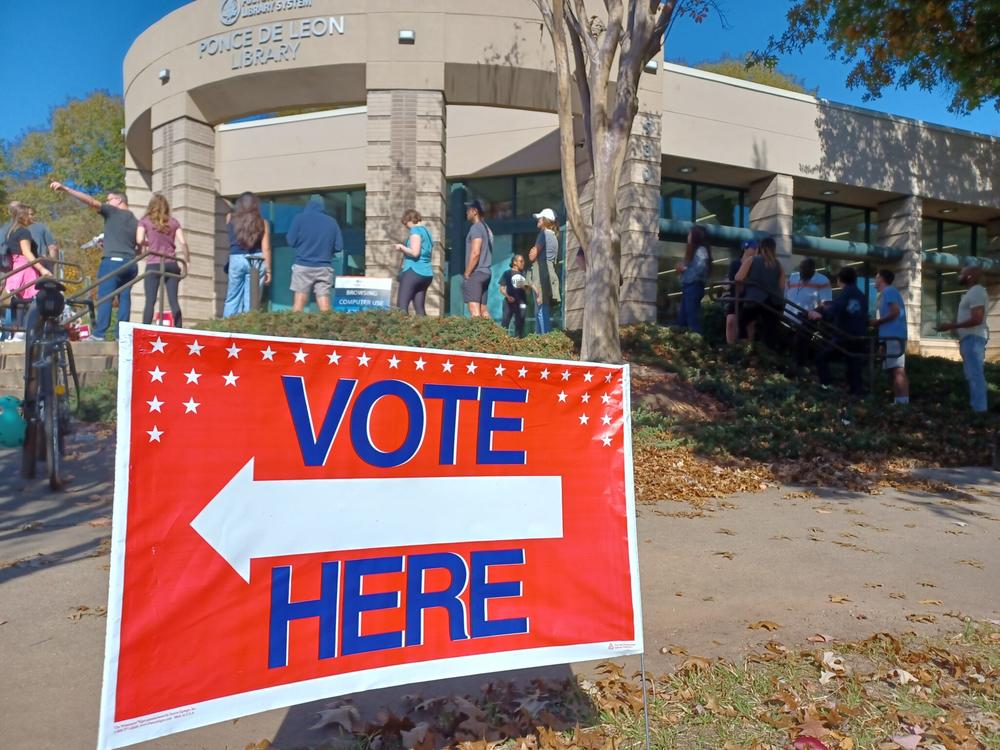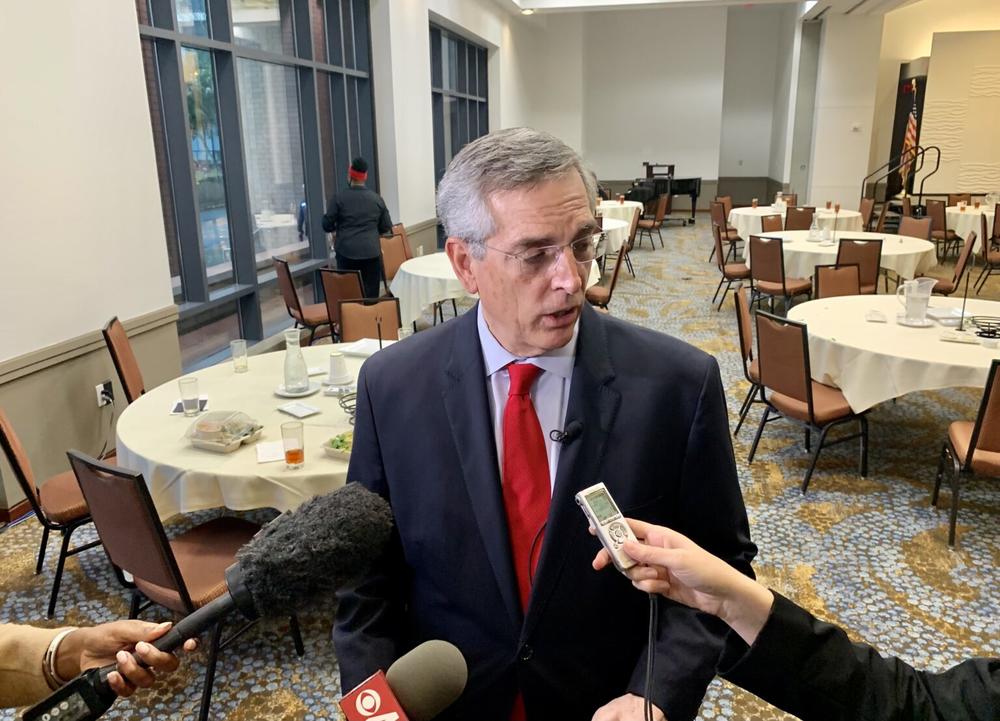
Caption
The line of people waiting to cast ballots stretched around Atlanta’s Joan P. Garner library at Ponce de Leon Avenue and down the block after lunch on 2022’s last day of early voting in Atlanta.
Credit: John McCosh / Georgia Recorder


